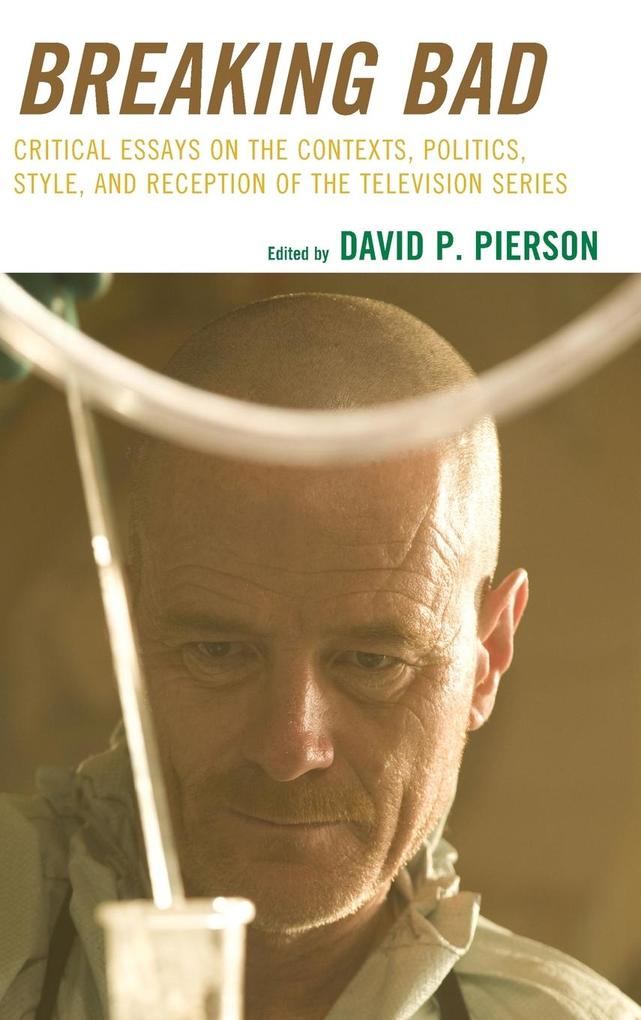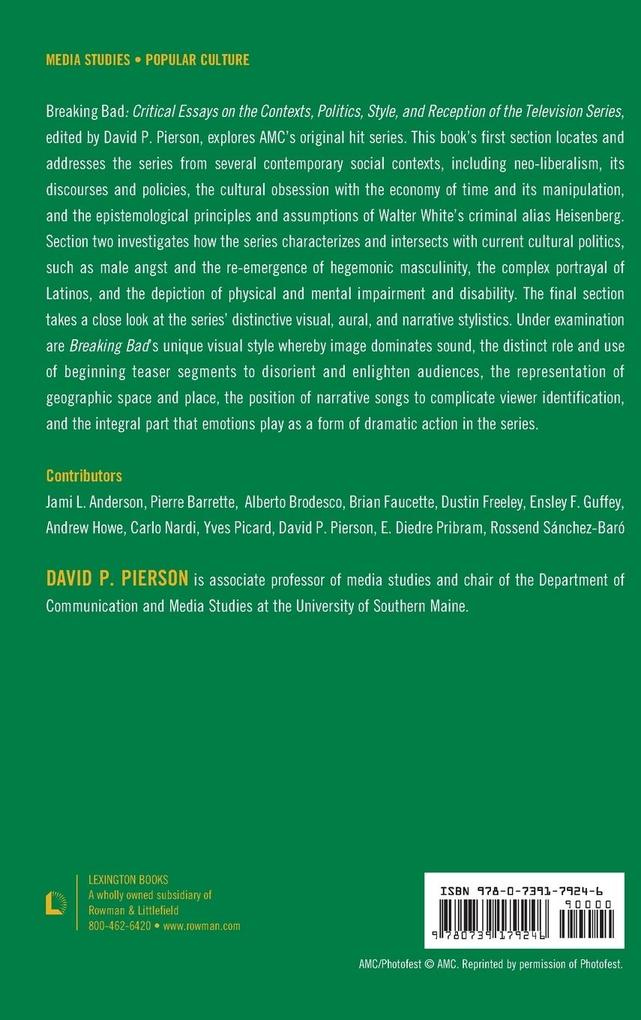
Zustellung: Mo, 26.05. - Fr, 30.05.
Versand in 1-2 Wochen
VersandkostenfreiBestellen & in Filiale abholen:
Breaking Bad: Critical Essays on the Contexts, Politics, Style, and Reception of the Television Series, edited by David P. Pierson, examines the social contexts, cultural politics, and visual, aural, and narrative style of AMC's original series Breaking Bad. This collection of critical essays explores such topics as neo-liberalism, spatiality and temporality, modern science and its principles, the representation of masculinity, Latinos, and disabilities, the function of narrative teasers and songs, and the role of emotions as dramatic action in the series.
Inhaltsverzeichnis
Table of Contents
Acknowledgements
Introduction
The Contexts of Breaking Bad
1. Breaking Neoliberal? : Neo-liberalism, its Discourses, and Breaking Bad
David P. Pierson
2. Multiple Existences and the Economy of Time in Breaking Bad
Dustin Freely
3. Heisenberg, Epistemological Implications of a Criminal Pseudonym
Alberto Brodesco
The Politics of Breaking Bad
4. Taking Control: Male Angst and the Re-emergence of Hegemonic Masculinity in Breaking Bad
Brian Faucette
5. Not Your Average Mexican: Breaking Bad and the Destruction of Latino Stereotypes
Andrew Howe
6. A Life Not Worthy Living
Jami L. Anderson
The Style of Breaking Bad
7. Breaking the Waves
Pierre Barrette and Yves Picard
8. Uncertain Beginnings: Breaking Bad's Episodic Openings
Rossend Sanchez Baro
9. Buying the House: Place in Breaking Bad
Ensley F. Guffey
10. Mediating Fictional Crime, Music, Morality and Liquid Identification in Breaking Bad
Carlo Nardi
11. Feeling Bad: Emotions and Narrativity in Breaking Bad
Deidre Pribram
Main Cast, Production History, and Episode Guide
Index
About the Contributors
Acknowledgements
Introduction
The Contexts of Breaking Bad
1. Breaking Neoliberal? : Neo-liberalism, its Discourses, and Breaking Bad
David P. Pierson
2. Multiple Existences and the Economy of Time in Breaking Bad
Dustin Freely
3. Heisenberg, Epistemological Implications of a Criminal Pseudonym
Alberto Brodesco
The Politics of Breaking Bad
4. Taking Control: Male Angst and the Re-emergence of Hegemonic Masculinity in Breaking Bad
Brian Faucette
5. Not Your Average Mexican: Breaking Bad and the Destruction of Latino Stereotypes
Andrew Howe
6. A Life Not Worthy Living
Jami L. Anderson
The Style of Breaking Bad
7. Breaking the Waves
Pierre Barrette and Yves Picard
8. Uncertain Beginnings: Breaking Bad's Episodic Openings
Rossend Sanchez Baro
9. Buying the House: Place in Breaking Bad
Ensley F. Guffey
10. Mediating Fictional Crime, Music, Morality and Liquid Identification in Breaking Bad
Carlo Nardi
11. Feeling Bad: Emotions and Narrativity in Breaking Bad
Deidre Pribram
Main Cast, Production History, and Episode Guide
Index
About the Contributors
Produktdetails
Erscheinungsdatum
21. November 2013
Sprache
englisch
Seitenanzahl
234
Herausgegeben von
David P. Pierson
Verlag/Hersteller
Produktart
gebunden
Gewicht
537 g
Größe (L/B/H)
235/157/18 mm
ISBN
9780739179246
Entdecken Sie mehr
Bewertungen
0 Bewertungen
Es wurden noch keine Bewertungen abgegeben. Schreiben Sie die erste Bewertung zu "Breaking Bad" und helfen Sie damit anderen bei der Kaufentscheidung.











